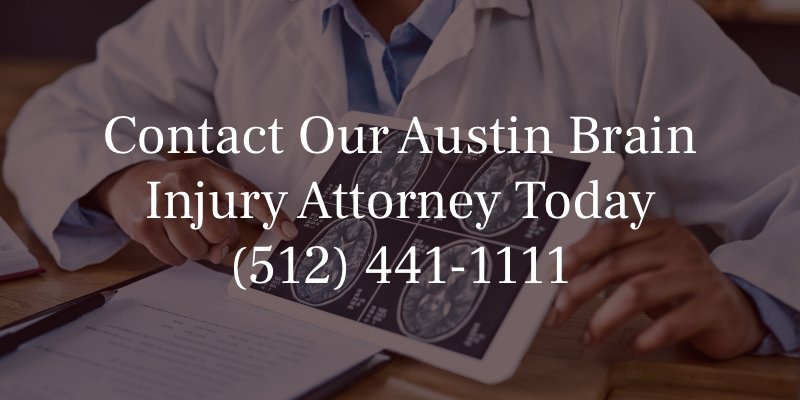Protecting accident victims for over 30 years
Experienced personal injury lawyers who are always on your side. We are dedicated to protecting your rights and livelihood.
START MY FREE CONSULTATIONAccording to the Texas Health and Human Services Commission, approximately 144,000 Texans sustain a traumatic brain injury (TBI) each year, which is one person every 4 minutes. A TBI is one of most severe injuries to happen to a person, creating possible lifelong disabilities.
If you or a loved one has suffered a traumatic brain injury, you need the help of an experienced Austin brain injury lawyer at the Bonilla Law Firm to protect your interests and ensure that you are compensated by those who harmed you or were negligent. Contact us for a free case evaluation.
In the state of Texas, there is a time limit on how long accident victims has to file suit for damages in a personal injury case, whether it be a slip and fall or car accident case.
In the Lone Star State, the time limit, better known as the statute of limitations, is two years from the date of the accident. This means that many victims have a maximum of two years to file suit against the defending party. If a victim of a traumatic brain injury waits too long to file suit for their personal injury, the injured party risks missing the window for pursuing damages for their case.
It is best to file a case as soon as possible after the injury has occurred. By filing shortly after the injury in question, the event is fresh in the victim’s mind. These events can frequently leave victims with a post-traumatic stress reaction and can lead to details being forgotten or lost over the course of time.
No two brain injuries are alike and the impact a TBI has is unique to each case. The head injuries and concussions caused from a car accident may or not be different from a slip and fall injury. The medical care and medical attention required varies from one case to the next. One might experience impairment in some or all of the following areas at varying degrees:
Physical impairments:
Cognitive/Communication Impairments:
Perceptual Impairments:
Behavioral/Emotional Impairments:
Some symptoms occur immediately following a traumatic brain injury, and some may even develop years later. Living with this kind of traumatic head injury not only impacts you physically but in your personal life as well. It can cause strain on relationships with family and friends, especially if you require a caretaker, not to mention the financial stress from mounting medical costs.

Traumatic brain injuries can occur from several different activities and accidents. From sports injuries, to car accidents, hitting your head with enough external force can cause a TBI. In cases of traumatic brain injuries, several different activities can cause a traumatic brain injury. According to the CDC, some of the most common causes of brain injuries are:
Individuals that are at a higher risk of traumatic brain injuries are those under the age of four years old and over the ages of sixty-five years old. If you or a family member have been impacted as a result of a traumatic brain injury, it is imperative to make a visit to your doctor’s office or emergency department. Brain injuries can have drastic short and, in some cases, result in permanent brain damage with wide ranging symptoms. Have a medical doctor diagnose the injuries that have occurred. Even “minor” traumatic brain injuries can cause symptoms that last for months.
Traumatic brain injuries are relatively common, and many will experience some sort of mild brain injury. According to the CDC in 2014, there were approximately 2.87 million traumatic brain injuries that required emergency departments hospitalizations or deaths. Not all brain injuries have similar symptoms or short-term or long-term effects. However, all brain injuries and blows to the head should be examined and taken seriously.
Even mild traumatic brain injuries can cause symptoms and interruption of otherwise normal senses. According to the Mayo Clinic, even a mild injury can require prompt medical attention to diagnose the injury suffered.
Even though these symptoms are classified as “mild”, even injuries considered “mild” can accumulate to more severe symptoms over time. Some of the most common symptoms of mild TBI injuries include:
Moderate TBI symptoms can occur within a couple of hours of the injury, or can take a few days before the symptoms are visible. Some of the physical symptoms of moderate brain injuries include:
Victims that sustain serious brain injuries can suffer from life-long symptoms that impact movement and cognitive functions. Some common symptoms associated with severe TBI include:
Since every traumatic brain injury is unique to several variables including numerous components pertaining to the victim of the injury including age, sex, previous concussions and genetics.
After an injury to the brain occurs, there are certain life-long injuries that a TBI victim may experience. When brain injuries go untreated, or are more severe in nature, medical problems can exist for the duration of the injured victim’s life.
Medical issues from these types of injuries can vary from one TBI injury to the next. However, some of the most common long-lasting injuries can include:
While some mild traumatic brain injury victims can make full recoveries from their injuries, other victims of more serious traumatic brain injuries may unfortunately not be as lucky. Due to the severity of a traumatic brain injury, some victims may deal with life-long cognitive, communication and in some cases mobility issues. Since each traumatic brain injury is unique, some may recover while other victims can have life-long injuries.

Due to the severity of traumatic brain injuries, there are multiple types of damages that can be recovered from a TBI injury. Recoverable damages for a victim and a victim’s family includes:
One of the most commonly recovered damages in a personal injury case includes damages for physical pain. Victims diagnosed with traumatic brain injuries can suffer short and long-term painful symptoms of the injuries.
Emotional damages are intended to compensate an injured victim for the psychological and emotional distress sustained during the accident. Examples of emotional pain that can be considered for damages include fear and anxiety of certain activities, anxiety and change in sleep patterns.
The United States has the most expensive healthcare system on the planet. Even with healthcare coverage, victims of traumatic brain injuries can be burdened with high medical bills resulting from an accident. These medical bills can result in huge financial obligations for injured individuals. Medical expenses can be included as damages in a civil case to help victims offset the medical bills resulting from a traumatic brain injury.
In personal injury cases, the loss of consortium results from damages typically awarded for the losses of a spouse. The loss of consortium damages help offset the loss of companionship and the inability to maintain a sexual relationship between spouses. In certain cases, these damages can be awarded directly to a family member instead of the traumatic brain injury victim.
The inability to return to work can seriously hinder the financial well-being for an individual and their family. In the event that an injured victim is unable to return to work and suffers a loss of earning capacity, the loss of earning capacity can help off-set the future of earning capacity of a victim.
If your brain injury is a result of another person’s negligence, the help of a skilled brain injury lawyer can help obtain compensation for your losses. Our legal team is knowledgeable about how to investigate your case in order to pursue a strategy that results in a full and fair financial recovery. Types of compensation you may seek can include:
In some brain injury cases, punitive damages may be sought as well. These damages are aimed to punish the at-fault party if they were especially reckless or for their willful misconduct. Our traumatic brain injury attorneys help navigate the legal options and offer a pathway to recouping damages.
We examine medical records and medical treatments of the injured person, file the necessary paper work, negotiate with applicable insurance companies and correspond with the responsible party, or parties, to help victims of traumatic brain injuries recover what is required to help restore what was lost in the accident.
The personal, familial and financial consequences of a traumatic brain injury can be astounding. Some victims of traumatic brain injuries require care takers or are in a vegetative state the rest of their lives. In these instances, the medical bills and cost to assist the injured party can be crippling to a family that has suffered this type of injury. The experienced Austin traumatic brain injury lawyers at the Bonilla Law Firm will act as an advocate on behalf of your family and fight for the compensation required to help your circumstances.
Our Austin brain injury lawyers understand the seriousness of a TBI, along with the financial burdens and loss of consortium that come from medical bills and being unable to work. Our goal is to ease those burdens by advocating for traumatic brain injury victims in Austin, Travis County and anywhere in Texas, in order to obtain the compensation victims and their families are justified to, to help move forward with their lives. For a free consultation to discuss legal advice and matters of you or a loved one’s case, reach out to us via our contact form or call us at (512) 441-1111.